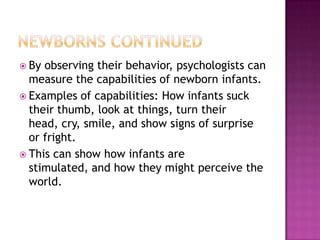The document summarizes key aspects of infant and child development from birth to age 2. It discusses infants' physical abilities and reflexes at birth and in following months. It also addresses theories of nature versus nurture influences on development. The stages of motor development like rolling over, sitting, crawling, and walking are outlined. Cognitive development processes such as perception, learning, language acquisition, and thought are also examined.













